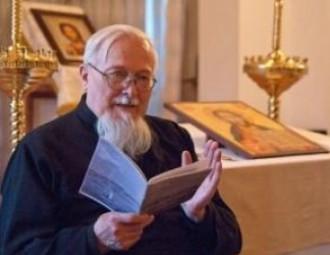Father Alexander Nadson: It is painful for me that the International Congress of Belarusan Studies takes place not in Belarus.
 Father Alexander Nadson
Father Alexander Nadson
An unfortunate tendency has emerged in Belarus so that most of the Belarusans know nothing about their country, neither its history nor culture; being interested in borrowed realities, forgetting their own ones
These thoughts Father Alexander Nadson, the Apostolic Visitor for all Belarusan Greek-Catholic faithful abroad, a priest of Belarusan Greek Catholic Church and a notable Belarusan émigré social and religious leader, shared to the EuroBelarus Information Service.
He deplores that the Second International Congress of Belarusan Studies took place in the country which it has been dedicated to.
- I think that such events are of much use. Firstly, it is us, Belarusans, who need to know a little more about Belarus, as the majority of Belarusans don’t know anything about their country – neither its history nor culture. They are interested in borrowed realities, but forget about their native ones. Secondly, we need to hand down data about Belarus to foreign researchers, to the scientific thought of the world, says Father Alexander Nadson. It is very pity that this congress is taking place not in Belarus itself. I know that the Congress in Minsk can be wrecked by denying accommodation to the organizers in the last moment, and this is very sad. But anyway, the good thing is that such a Congress happens. I have also been invited, but unfortunately, I can’t take part in it, as my level of health prevents me to do so. I’m 86 years old after all. But I am following this Congress with a great interest. God grants that the situation will change and such Congresses will be held in Belarus someday.
According to the priest, everything possible should be done to strengthen Belarusan self-consciousness, and the Congress of Belarusan Studies largely contributes to it.
- Unfortunately, free Belarusan thought can be delivered only beyond the borders of Belarus, as far as it is very hard doing inside the country. And this is the tragedy of our nation, noted Father Alexander Nadson.
About the author: Father Alexander Nadson is the Apostolic Visitor for all Belarusan Greek-Catholic faithful abroad since the late 1980s; he was one of the founders of the Association of Belarusans in Great Britain and its chairman in 1951-1953, and editor of the periodicals ‘Biełarus na čužynie’ and ‘Na šlachu’, took part in the activities of the Belarusan Christian academic society ‘Ruń’ and the ‘Belarusan People's Independent Christian Movement’. Emigrated from Belarus in 1944, he moved to Great Britain in 1946 after being wounded as a soldier in the 2nd Polish Corps fighting in northern Italy. He studied at the University of London. From autumn 1953 he studied at the Pontifical Greek College in Rome, and was ordained priest on 23 November 1958. Returned to London in July 1959, Fr Nadson resumed his activities in organizations of the Belarusan diaspora.
Since 1971 Fr Nadson has been the director of the ‘Francis Skaryna Belarusian Library and Museum’ in London, the largest Belarusan library abroad; since 1981 - the head of the Belarusan Catholic mission in Great Britain. He is the head of a Chernobyl charity fund.
Currently Fr Alexander translates the Book of Psalms into Belarusan.
-
03.01
-
07.10
-
22.09
-
17.08
-
12.08
-
30.09










































